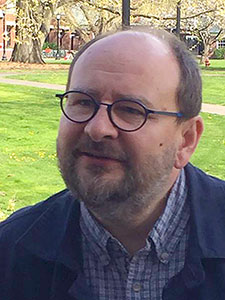
Many have likened Putin to a czar, given his strongman persona and his arguably imperialist actions. Do you think this comparison is justified?
I don’t think it’s productive. The difference between the realm of the emperors and contemporary Russia is enormous. When people say Putin is like a czar, what they really mean is he’s a bad guy. He’s not democratic. A more productive comparison would be to rulers like Franco in Spain or Salazar in Portugal—some even say Mussolini. Today, he clearly has parallels in Turkey’s Erdoğan and Hungary’s Orbán, and shares Trump’s style of bombastic nationalism. Putin is probably the first of this new wave of populist authoritarians.
But we also need some balance. Remember, Russia remains a relatively free society. True, the government controls most of the federal TV channels, but the internet remains largely unregulated. People can leave at any moment, travel across the borders. Those who don’t have much experience in Russia say that Russians are submissive, they don’t rebel. But Russia had four revolutions in the 20th century, and millions came out in the streets in the 1990s.
There have been more protests against Putin in recent months. But his support remains strong. How do you explain this?
It’s because people think that if Putin goes, the situation would revert to the 1990s. That decade was one of the most horrible periods in their entire span of history. They had inflation that exceeded that in Weimar Germany in the 1920s. They had complete collapse of social services, health services, pensions. Putin’s implicit contract with the people is: “You don’t rebel, and I guarantee you a degree of order and prosperity.” How long will this contract hold? I think it can hold for a while.
John Kerry called Putin’s annexation of Crimea “19th-century behavior in the 21st century.” The world condemned the move, but Putin’s domestic approval ratings shot up. Why?
Because nationalism is a potent reality anywhere in the world. The breakup of the USSR left dozens of hotspots on the map, and they can be instrumentalized for nationalist mobilization. Given the emerging problems with Russian economic growth, the Ukrainian crisis actually came in handy for Putin. It created an entirely new political agenda, distracted people from other issues.
He knows anti-Americanism is a very powerful tool, and he played it well; he intervened in Ukraine and snatched Crimea, all the while presenting Russia as a target of U.S. imperialism. And then what followed was a major international crisis and isolation of Russia. How do you solve such a crisis? You become an important player in the Middle East. Western powers will have to talk to you. Hence Syria.
How would you frame Russian meddling in the 2016 U.S. presidential election?
Many experts on Russia are—how should I put it?—cautiously skeptical about the amount of attention the U.S. media devotes to this whole story. For me, the greatest issue here is that it distracts from the real issues the U.S. is facing. Putin is not responsible for racism, misogynist politics, the whole rise of the right.
Also, reading the American media, you have the idea that Putin is well-nigh powerful. It’s very hard for me to imagine that Russia would be able to mount a coordinated attack like that on the United States, because it would require a lot of planning, concerted effort and organization, and I don’t believe it’s there. It makes Putin look way more powerful than he really is.